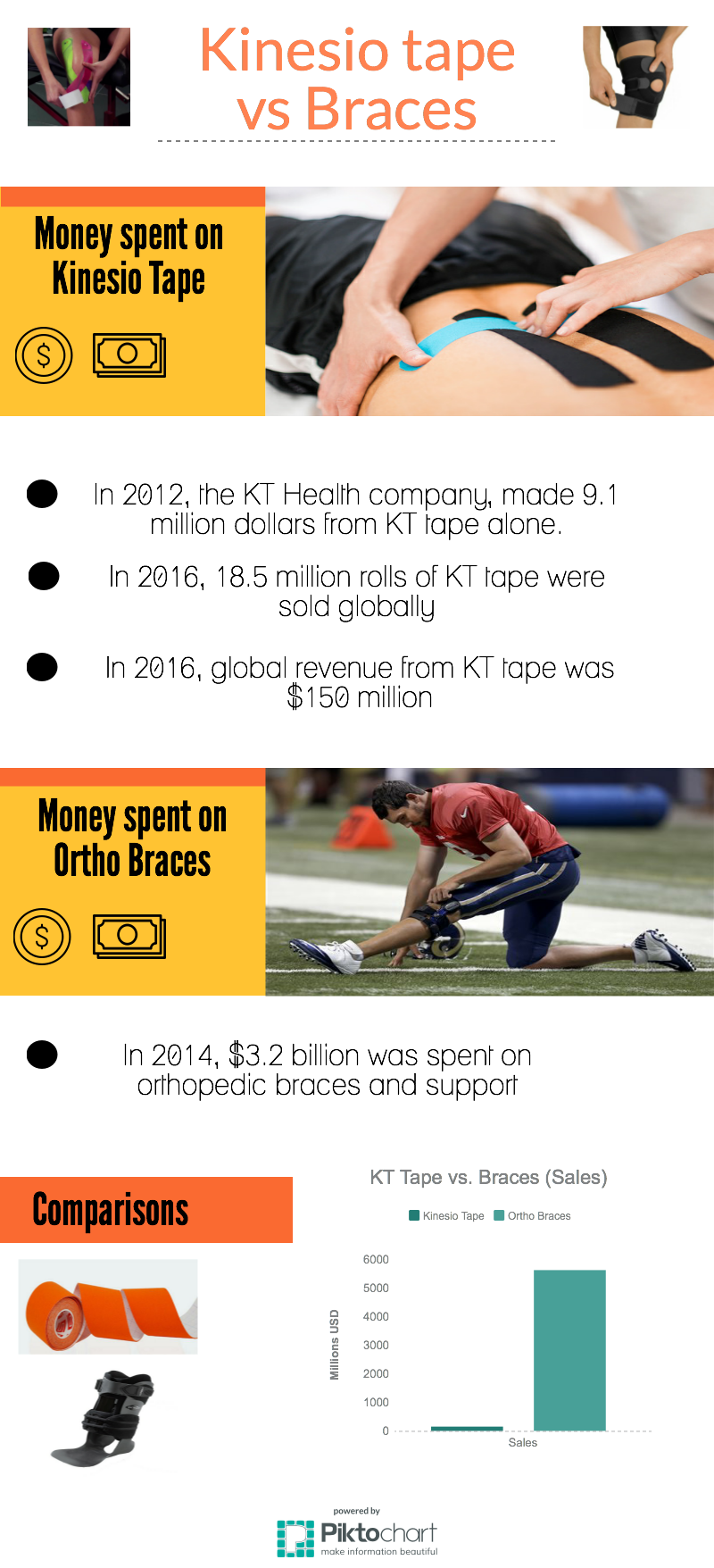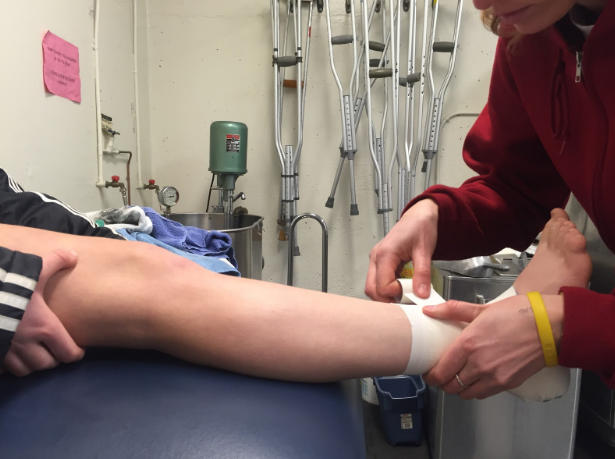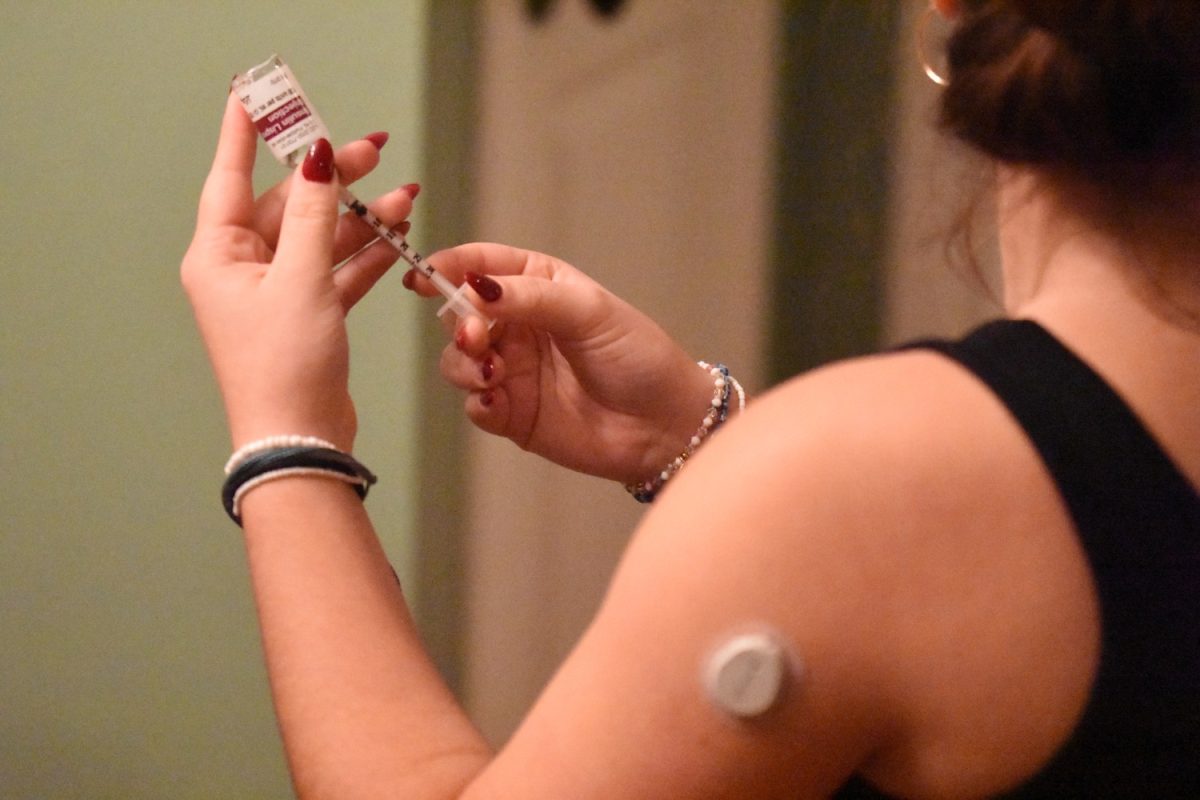Sophomore JV football player Sammy Blucher injured her knee while practicing her kicking for too long.
Blucher is just one of the many Carlmont athletes who was injured during the sports seasons. Sports seasons are only two to three months, so an injury could take an athlete out for the whole season.
Athletes deal with injuries in different ways, but one way that enables them to complete the season is to use KT tape.
KT tape, or Kinesiology Tape, is a type of stretchy, sticky material that can be applied directly to the skin. Athletes stretch the tape in certain places and apply it so that it holds muscles in place as well as pulling the skin away to allow better blood flow. The tape is stretchy so it can also allow movement when needed.
KT tape is used by professional sports therapists. According to Pro-Am Sports Injury Clinic therapist Jenna Wheatman, “It provides support and stability to muscles and joints without restricting the body’s range of motion.”
Although small cuts or bruises heal quickly, other injuries require more treatment and time to heal. Many Carlmont athletes believe that using KT tape can allow them to come back to their sport sooner.
Akiko Balitactac, a sophomore, is a black belt in judo and has been training for over nine years. She partially tore her medial collateral ligament (MCL) and dislocated her knee, forcing her to stop training for 3 months.
Now that she has recovered, Balitactac uses KT tape for judo as it provides support from her previous injuries.
“I have used metal braces, ankle braces, regular tape, pre-wrap, and ACE tape, but KT tape has worked better because it can always be there. You can even shower in it,” Balitactac said.
Other Carlmont athletes also say how KT tape reduces the pain and helps them compete.
Tiara Testa, a sophomore on the volleyball team said, “KT tape helps a lot so I can use my ankle more for volleyball without the pain.”
For Blucher, KT tape is a necessity for her training.
“It keeps muscles in place so you can’t feel the pain and holds everything together,” Blucher said.
Although it has broad appeal, KT tape may not be what people claim it is.
According to WebMD, “Some experts have suggested there may be a placebo effect in using the tape, with athletes believing it will be helpful.”
In response to this idea, Sean William’s article “Sports Medicine” said, “There was little quality evidence to support the use of KT over other types of elastic taping in the management or prevention of sports injuries. There was no substantial evidence to support the use of KT for improvements in other musculoskeletal outcomes (pain, ankle proprioception or muscle activity).”
This has caused problems for some KT tape manufacturers. In 2015, a complaint was filed in the District Court of Massachusetts and is attempting to sue the company.
The complaint said, “KT Health deceptively marketed the product to customers by using Olympic athletes and famous sports stars to advertise the product as pain relieving tape. [It is an] unfair and deceptive conduct, untrue and misleading advertising, and unjust enrichment.”
The lawsuit is still pending.
For Carlmont athletes, using KT tape could simply be more helpful mentally than physically.
Sbardellati said, “I think that KT Tape may work more mentally than physically. Every athlete wants to be competitive and have the opportunity to play their sport for an entire season. Many Carlmont athletes use KT tape to deal with pain, but it remains unclear if it is truly helpful.”













